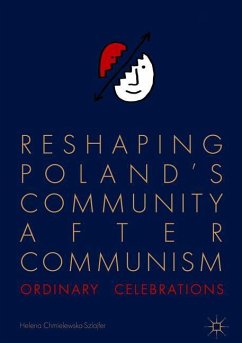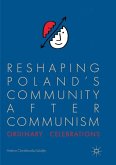Harnessing a cultural sociological approach to explore transformations in key social spheres in post-1989 Poland, Chmielewska-Szlajfer illuminates shifts in religiosity, sympathy towards others, and civic activity in post-Communist Poland in the light of Western influence over elements of Polish life.
Reshaping Poland's Community after Communism focuses on three major cases, largely ignored in Polish scholarship: (1) a hugely popular, faux-baroque Catholic shrine, which illustrates new strategies adopted by the Polish Catholic Church to attract believers; (2) Woodstock Station, a widely known free charity music festival, demonstrating new practices of sympathy towards strangers; and (3) the emergence of national internet pro-voting campaigns and small-town watchdog websites, which uncover changes in practical uses of civic engagement.
In exploring grass-roots, everyday negotiations of religiosity, charity, and civic engagement in contemporary Poland, Chmielewska-Szlajfer demonstrates how a country's cultural changes can suggest wider, dramatic democratic transformation.
Reshaping Poland's Community after Communism focuses on three major cases, largely ignored in Polish scholarship: (1) a hugely popular, faux-baroque Catholic shrine, which illustrates new strategies adopted by the Polish Catholic Church to attract believers; (2) Woodstock Station, a widely known free charity music festival, demonstrating new practices of sympathy towards strangers; and (3) the emergence of national internet pro-voting campaigns and small-town watchdog websites, which uncover changes in practical uses of civic engagement.
In exploring grass-roots, everyday negotiations of religiosity, charity, and civic engagement in contemporary Poland, Chmielewska-Szlajfer demonstrates how a country's cultural changes can suggest wider, dramatic democratic transformation.








